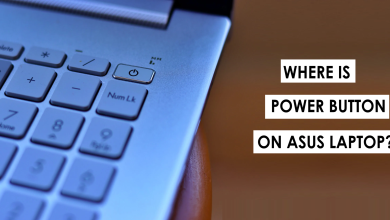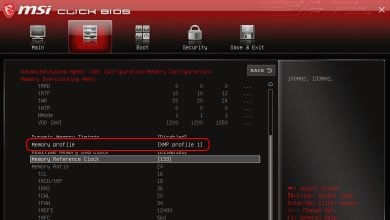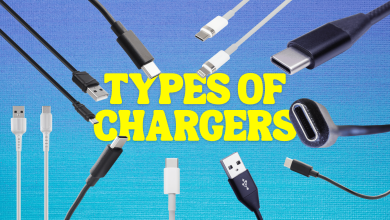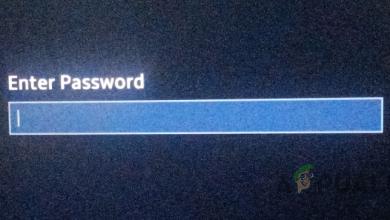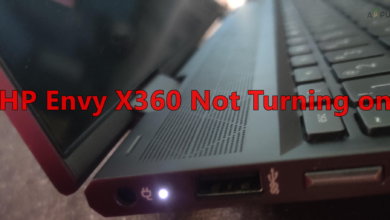Guide: Ensure your motherboard will support Ryzen 4000 (4th Gen)
Update: The Zen 3 5000 series has just been confirmed. There was speculation whether the 5000 series would incorporate the Zen 3 or Zen 4 architectures. Just a few days ago, AMD officially announced that the Ryzen 5000 series will run on the Zen 3 architecture, their most successful architecture to date. Zen 4 is now speculated to come out sometime in 2021 or 2022.
The next generation of Ryzen processors, the AMD Ryzen 4000 (4th Gen) series, is expected to come out this year. Although there’s no official release date specified yet, based on past release trends, we expect it to be launched sometime around the third quarter of 2020 and officially hit the markets for sale the following month along with the RDNA 2-based Radeon RX Navi 2x graphics card. Earlier in October, the company confirmed the launch of the official line
Similar AMD Motherboards: Best B350 Motherboard
With the latest octa-core Ryzen processors coming in, you are bound to wonder whether you can trade up the processor of your computer for the next generation of AMD’s Ryzen microprocessors. The new series will consist of new generation architecture desktop chips designed to provide a powerful boost in utility while fitting into the trendy sleek device structure that has become integral nowadays. The performance beasts: the Ryzen 9 4900H and the Ryzen 9 4900HS chips are what the stronger line of PC devices will be absorbing in upcoming models. The latter is a 16-thread, 35W TDP processor with 3 GHz base clock speeds that can be overclocked to 4.3 GHz capacity. The former is heavier on power consumption, waging 45 watts TDP, but starts at a base of 3.3 GHz and can be overclocked to a 4.4 GHz capacity speed.
Lenovo’s Yoga Slim 7 and the ASUS Zephyrus G14 have already committed to hosting the octa-core Ryzen 7 4700 U processors in their 2.2-pound ultrabook. Other incoming models in the next few months that will sport the Ryzen 4000 series include the Dell Inspiron 14 7200 2-in-1 and the ThinkPad notebooks which will adopt the mobile processor in the 4th Gen Ryzen family. Desktop computers supporting Ryzen 4000 CPUs with the Zen 3 architecture are bound to be prepared later this year as well.

Initially, AMD had not announced support for X470 and B450 motherboards, stating that only the newer X570 and B550 motherboards would accommodate the Ryzen 4th generation architecture due to the former motherboards’ inability to squeeze in the space heavy microcode updates needed to accommodate the 4th generation processors. The 400 series motherboards are only a couple years old, however, and if you’ve got one of them, you’re in luck because AMD has changed its mind. They’ve decided to discontinue support for some previous processor versions to create flash space that would allow for microcode updates to facilitate the adoption and operations of the Ryzen 4th generation processors.
Expect a BIOS update to come out that will perform these microcode updates on your device to allow for the newer Ryzen microprocessors to be supported but bear in mind that many older microprocessors will no longer be supported if you apply this update. The way this BIOS update will roll out in a regulated manner is that customers who purchase the new Zen 3 Ryzen processors for 400 series motherboards will be given this irreversible update that will allow them to use the newer microprocessors. The reason for this regulation and verification is that if support for previous processors is removed in the new update and you do not have the new Ryzen processor installed in your system, your device will not boot up. To ensure that the update is used as intended among users who actually intend to upgrade to the 4000 series of Ryzen processors, AMD will ask for some proof of purchase of the new 4th generation processors before handing you the update.
More like this: Best X370 AM4 Ryzen Motherboards
When this update comes out for the particular motherboard you own will depend upon your manufacturer. There may even be some delay until the BIOS update comes around after the new Ryzen processors actually hit the market. Support in the X570 and B550 motherboards is already announced and that’s what AMD recommends to have to accommodate the new Ryzen processors, but that is not something they’re forcing down your throat for the sake of upgrading to the new generation of Ryzen. If you’re a 400 series motherboard user with the Best X470 Motherboards or B450, you can wait it out for the BIOS update for your motherboard as promised. This BIOS update, however, will be the last processor update for you and you won’t be able to accommodate beyond the 4th generation of processors according to AMD. This step was taken to increase the longevity of the AM4 socket 400 series of motherboards which are not old enough yet to lose official support. If you own a 500 series motherboard, then you’re all set for the release date and will have the first set of BIOS updates out to accommodate the new Ryzen 4000 processors.
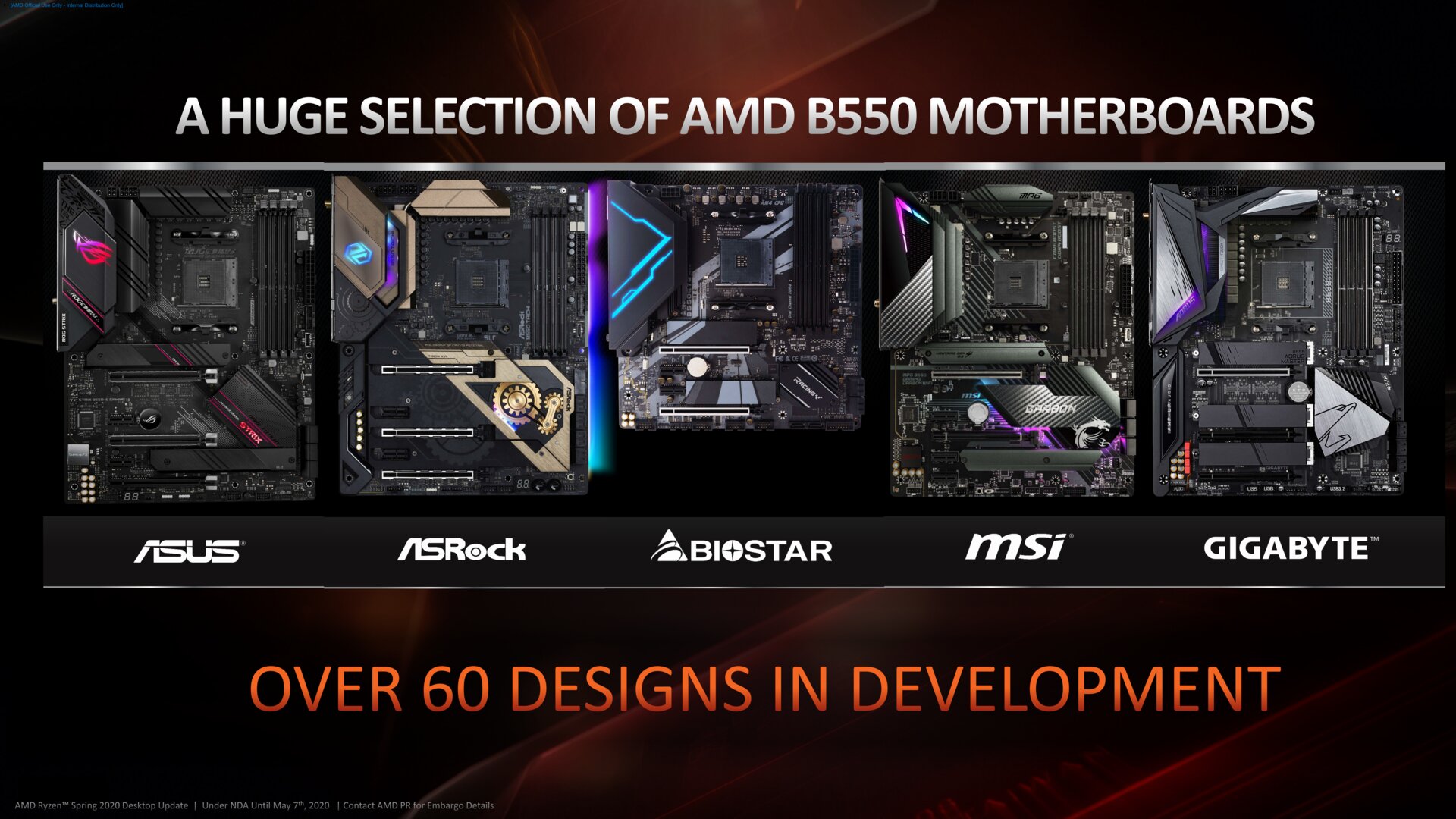
Speaking of technologies going out of date, the Ryzen 4000 series of microprocessors will be the last generation to be built for the AM4 socket which was used in the 300, 400, and 500 series motherboards. The 5000 series of processors will incorporate the Zen 3 architecture and have a different chipset and socket than previous generations. Given that the upcoming 4th generation release still configures itself around the functionality of the AM4 sockets, while selective support has been announced for 400 series motherboards, 300 series motherboards have not been promised anything and will not be able to reap the benefits of the latest in Ryzen processor technology.
On the desktop side of things, the Ryzen 4000 chipsets are expected to come out in a Zen 2 Renoir architecture including the Ryzen 3 4200G, Ryzen 5 4400G, and Ryzen 7 4700G, and a Zen 3 Vermeer based architecture which targets IPC gains (estimated at 17%), improved clock speeds, and better overall performance for power. On the whole, the answer to the support question points out that AMD Socket AM4 400 and 500 series motherboards will be supported.
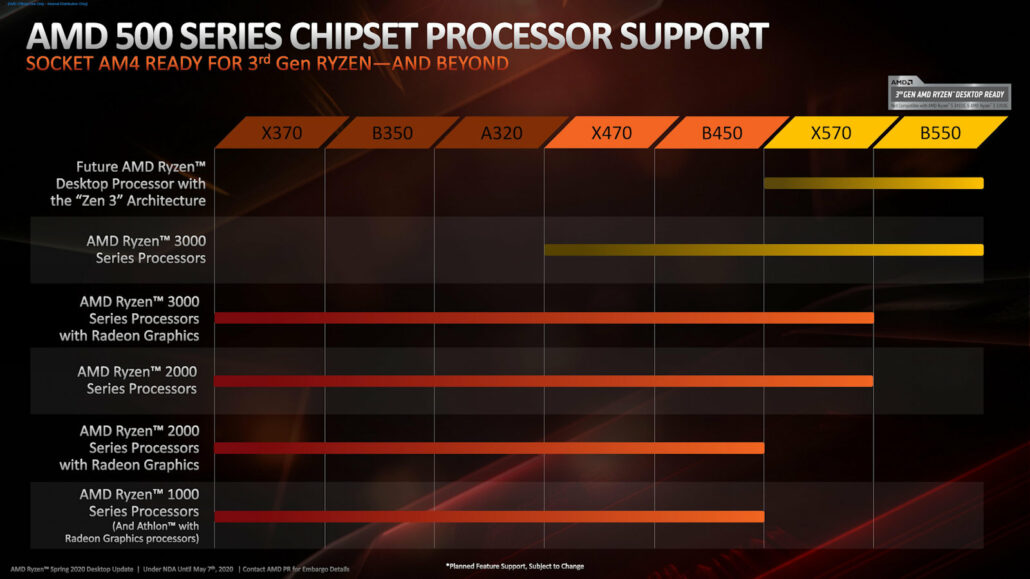
Verdict
From a technological standpoint, there isn’t really any manual hardware configuration that you can perform to manipulate the structure of your motherboards to accommodate the new generation of Ryzen. The new technology is only compatible with a certain AM4 socket architecture that has enough flash memory on the motherboard to allow for the BIOS microcode updates. If you’re a 400 or 500 series motherboard user, these are exciting times for you and an upgrade may be destined in your near future if you choose to invest in it. Older motherboard users will have to replace their motherboards or invest in one of the newer motherboards set to be released that have already committed to hosting the Ryzen 4th generation microprocessors. Lastly, if you own a mediocre motherboard and you’ve already planned to stick with the existing 3rd Generation of the Ryzen processors, we strongly suggest you to check out these X570 Motherboards.
